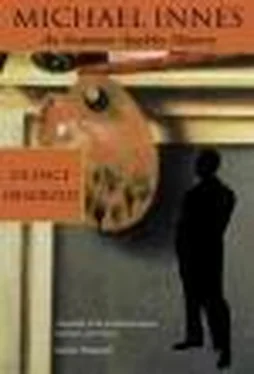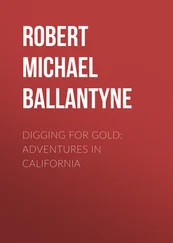Michael Innes - Lament for a Maker
Здесь есть возможность читать онлайн «Michael Innes - Lament for a Maker» весь текст электронной книги совершенно бесплатно (целиком полную версию без сокращений). В некоторых случаях можно слушать аудио, скачать через торрент в формате fb2 и присутствует краткое содержание. Жанр: Старинная литература, на английском языке. Описание произведения, (предисловие) а так же отзывы посетителей доступны на портале библиотеки ЛибКат.
- Название:Lament for a Maker
- Автор:
- Жанр:
- Год:неизвестен
- ISBN:нет данных
- Рейтинг книги:4 / 5. Голосов: 1
-
Избранное:Добавить в избранное
- Отзывы:
-
Ваша оценка:
- 80
- 1
- 2
- 3
- 4
- 5
Lament for a Maker: краткое содержание, описание и аннотация
Предлагаем к чтению аннотацию, описание, краткое содержание или предисловие (зависит от того, что написал сам автор книги «Lament for a Maker»). Если вы не нашли необходимую информацию о книге — напишите в комментариях, мы постараемся отыскать её.
Lament for a Maker — читать онлайн бесплатно полную книгу (весь текст) целиком
Ниже представлен текст книги, разбитый по страницам. Система сохранения места последней прочитанной страницы, позволяет с удобством читать онлайн бесплатно книгу «Lament for a Maker», без необходимости каждый раз заново искать на чём Вы остановились. Поставьте закладку, и сможете в любой момент перейти на страницу, на которой закончили чтение.
Интервал:
Закладка:
For over an hour I watched the fire sweep past. Though powerless against the barrier of rock it yet added appreciably to the burning heat of the sun and the scorching breath of the dry north wind that fanned it behind. The climb and the heat and the terror of the scene had momentarily exhausted me; I drank charily from my water-bottle and concentrated all the resources of my will on the next and all-important battle – the battle against mere despair. Many men who have wandered in wild places have found themselves in just such a perilous pass but few, except perhaps in some ultimate stumbling agony, can have experienced my peculiar distress.
With my senses in fair order and almost unimpaired physical strength, I yet found myself void of all memory of my own identity or of my whereabouts. Below me, I was massively aware, was a landscape not native to me – the landscape of Australia in one of its most appalling manifestations. I had plenty of knowledge – I could have read Latin or recognized the Parthenon or selected a fly for trout – but of knowledge organized round the fact of personality this was my whole store: I was a stranger lost in Australia. Beyond this I found it impossible to struggle. My consciousness of myself had no wavering boundaries which effort could push back: I was imprisoned in ignorance by walls as sheer as the rock up which I had recently climbed.
The fire had rolled away – by watching the dropping sun I judged roughly to the south-west. It had left behind it a smoking vastness which would be dangerous to traverse before a night had passed; my only present course was to take what bearings I could, find shade, and rest.
I estimated my horizon at about fifty miles. And in all that vast circle, save for the eminence on which I stood, was nothing but the empty and featureless bush, scarred by one long and diminishing trail of fire – a rolling and planless dapple of scrub and sand, diversified only by a sporadic growth of timber or by the swell of some undulation slightly more pronounced than the rest. Of clearing or settlement or homestead, white man or black fellow, there was no slightest sign; the scene was void, sullen, and sinisterly waiting in a way that caught and haunted the nerve. Only on the very verge of the southerly horizon lay a single level pencilled line. Long and anxiously I studied it through the treacherous heat. And finally I decided to call it the sea and make it my goal.
I turned to reckon needs and resources. Tied to the haversack was a hat, the primary need of all. Inside were a shirt, oatmeal, some biscuits, matches and a few personal belongings at which I could only gaze in perplexity. I had no compass. But in my trousers pocket I discovered a watch. And I had a two quart billy-can without a lid.
In the bewildering country below me I believed that the watch and the sun alone would be useless. I needed the watch roughly set at noon, a clear star-lit sky, country sufficiently open and a surface sufficiently safe to traverse in the cool of the night. I needed water within twenty-four hours, and food within three or four days. These points determined, I found a patch of shade, lay down and was almost instantly asleep.
I awoke in the brief Australian dusk to see below me a hundred points of smouldering fire. But the main conflagration had disappeared, caught and smothered perhaps in some chance funnel of sand, and I decided to descend and at least test the possibility of beginning my journey that night. The route down the chimney was doubly hazardous in the failing light but I was in the mood for taking chances. The decision nearly cost me my life. It also saved it.
Before I was half-way down the light had failed badly. Near the bottom the chimney forked; I misjudged a foothold in attempting to take the route by which I had come and fell perhaps fifteen feet down the other branch of the cleft. I lay at once dazed and in a curious agony of calculation: a broken limb or a bad sprain and I was done for. I felt no pain – but pain often comes later. I moved my limbs; they answered my will and a wave of relief passed over me. It was followed by a wave of fear. My legs were soaked in what I thought was blood. It was water. The discovery changed all my plans. I must carry with me every ounce of water that I could, half of it in an open billy. Until the billy was exhausted I must never once stumble. Such a strange variant of the egg and spoon race could be accomplished only in daylight. I judged that the gain in water would outweigh an extra twelve hours’ strain on my food, as also the risk of my not being able to hold a fairly straight southerly course by the sun. This decided, I lay down once more to sleep or rest. The night was cool but without extreme cold or frost. This encouraged me in the belief that I had seen the sea: it was unlikely that I was either at a considerable altitude or islanded in a great land-mass.
I was up at dawn and, accepting the dubious analogy of the camel, drank a good deal more water than was comfortable. There was a difficult climb from the spring by which I had fallen to the open ground and I found that my mind, though tolerably clear, had alarming blind spots in addition to that of memory. I wearied myself with trying to climb free with a brimming billy before I saw that I could fill the billy in the open from the water-bottle and then return to the spring and replenish that.
Apprehending this aberration, I spent some bad moments in sheer fear of fear – in panic lest I had discovered in myself a first symptom of that paralysing panic that can come on men who feel themselves bushed. Concentration on the first miles of my egg and spoon race conquered this feeling. The scrub was fairly open and the undergrowth too sparse to be treacherous. I allowed myself a pint of water that day and brought the rest safely to my evening halt. During the march I had eaten a few biscuits; I now kindled a fire and cooked myself a species of oatmeal bannock on a flat stone. I felt far from hopeless.
Throughout the day I had been troubled by intermittent but piercing headaches; otherwise my physical condition was good. And that night I slept dreamlessly. But in the morning I was so stiff that I guessed my muscles had been more accustomed to riding than tramping.
On the second and third days I must have made some twenty miles a day. Thereafter, the billy being empty, I travelled by night. That I was moving almost due south I had no doubt and at the end of my third night-march I knew that I could not have seen the sea: my goal had been mirage or some lake now behind me. Everywhere about me still was the same unchanging emptiness, the same endless iteration of sand and scrub. Occasionally I sighted kangaroo in the dusk; once by daylight I hurried to meet two natives who proved – so deceptive was the light – no more than two lonely magpies perched on stumps. And then at dawn on the seventh day, when my water and provisions were both exhausted, I came upon the unmistakable tracks of a white man – the imprints, too often repeated to be a trick of nature, of a booted foot just distinguishable in the loose surface of the sand. I realized that they must be fresh – a breath of wind would have obliterated them – and I hurried forward with a dreadful fear that in my weakness I could never overtake the stronger man in front. My heart leapt when I saw, not a quarter of a mile ahead, the thin smoke going up from a camp fire. I ran forward, sobbing and trying to call out from a parched throat.
The man was dead. He lay with an empty water-bottle – his sole unabandoned possession – beside him. His body, still warm, was sprawled on its face, one arm stretched out towards the smouldering fire and the hand closed round a few dry leaves. Death had taken him in the act of feeding his last desperate signal.
Something broke in me – a barrier I had built up not against the thought of imminent death or my present extremity of weakness and thirst, but against the silence of the bush. The barrier broke and I heard the silence, the hot heavy silence untouched for hours either by the dry cicada or the rustle of a breeze in the parched grass. I called out and my voice was horrible; I threw down my haversack and ran, horribly calling out, into the encompassing emptiness away from that silent and vastly-vaulted tomb. The frenzy brought me some final access of strength and I must have stumbled forward for hours. My head was swimming and shot with piercing pains; there was a great roaring in my ears, a roaring as uninterrupted as the silence of days had been. The roaring grew to thunder. There was a moment with the quality of blinding revelation when I knew that the thunder was not within but without. Then I found myself standing on the very verge of a high cliff against which, far below, thundered the breakers of an open sea.
Читать дальшеИнтервал:
Закладка:
Похожие книги на «Lament for a Maker»
Представляем Вашему вниманию похожие книги на «Lament for a Maker» списком для выбора. Мы отобрали схожую по названию и смыслу литературу в надежде предоставить читателям больше вариантов отыскать новые, интересные, ещё непрочитанные произведения.
Обсуждение, отзывы о книге «Lament for a Maker» и просто собственные мнения читателей. Оставьте ваши комментарии, напишите, что Вы думаете о произведении, его смысле или главных героях. Укажите что конкретно понравилось, а что нет, и почему Вы так считаете.











